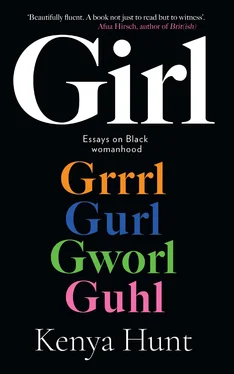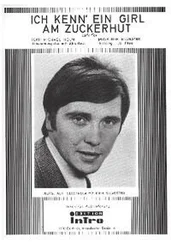Kenya Hunt - GIRL
Здесь есть возможность читать онлайн «Kenya Hunt - GIRL» — ознакомительный отрывок электронной книги совершенно бесплатно, а после прочтения отрывка купить полную версию. В некоторых случаях можно слушать аудио, скачать через торрент в формате fb2 и присутствует краткое содержание. Жанр: unrecognised, на английском языке. Описание произведения, (предисловие) а так же отзывы посетителей доступны на портале библиотеки ЛибКат.
- Название:GIRL
- Автор:
- Жанр:
- Год:неизвестен
- ISBN:нет данных
- Рейтинг книги:5 / 5. Голосов: 1
-
Избранное:Добавить в избранное
- Отзывы:
-
Ваша оценка:
- 100
- 1
- 2
- 3
- 4
- 5
GIRL: краткое содержание, описание и аннотация
Предлагаем к чтению аннотацию, описание, краткое содержание или предисловие (зависит от того, что написал сам автор книги «GIRL»). Если вы не нашли необходимую информацию о книге — напишите в комментариях, мы постараемся отыскать её.
GIRL — читать онлайн ознакомительный отрывок
Ниже представлен текст книги, разбитый по страницам. Система сохранения места последней прочитанной страницы, позволяет с удобством читать онлайн бесплатно книгу «GIRL», без необходимости каждый раз заново искать на чём Вы остановились. Поставьте закладку, и сможете в любой момент перейти на страницу, на которой закончили чтение.
Интервал:
Закладка:
The show of numbers throughout these moments reminded us of our own agency and collective power, especially when the world erupted in protests over the videotaped murder of George Floyd, an unarmed Black man suffocated under the knee of a white police officer. We mobilised on both small local and sprawling global levels. We raised money for bail funds for protestors, called government officials and demanded arrests, and circulated petitions to defund the police. We protested, both in the streets and virtually. And we called out racism as and when we saw it. We said their names: George. Breonna. Ahmaud. Tony. Aiyana. Eric. Michael. Sandra. Tamir. Tony. Tanisha. Yvette. Rekia. Natasha. Kindra. Kimberlee. Joyce. Ralkina. Kayla. Gynnya. Korryn. And we did all of this in a matter of weeks, with black women powering much of the action, from organising marches and conducting justice work trainings to creating social media campaigns and assets that mobilised millions around a range of action plans. Throughout it all, we asserted our beauty and humanity in the face of tragedy, while continuing to go to work, mother our families and support our friends and relatives. We showed up, together.
So while the world looks radically different from how it did when I first began writing these essays, reflecting on a decade’s worth of personal and cultural touchstones, the issues at its heart — belonging, connection, resilience and identity — remain. And as we re-evaluate our lives during one of the most pivotal years in modern history, and move forward towards a future that will be different from the one we imagined, I hope this book reminds you that even in the midst of chaos, we’re here, loving, persevering, growing and finding the meaning in life as we go.
1 Girl
Girl! GWORL. Gorl. Guhl. Gurl. Grrrrrlll.
‘Mommy, why is it that every time you’re on the phone or with your friends it’s always girl, girl, girl, girl?’ my son asked me two years ago, as I was tucking him into bed for the night. I was amused. Mostly at the sight and sound of myself through my five-year-old’s eyes and ears — he had gotten my animated pacing and high-pitched intonation just right — but also at the idea that I used the word enough for him to pick up on it.
‘I hadn’t realised, sweets. Do I really say it that much?’
‘Girl! You do,’ he said with a childish smirk, before turning over and closing his eyes. I tried to swallow my laughter as I turned off the light and tiptoed out of the room.
In my life I’ve used many pet names for the people I know and love: sis, luv, beauty, lovebug, babes, hon, pumpkin, doodlebug, sweets, bae, dumpling and peanut among others. But throughout my evolving networks of friends — and especially so among my Black chosen sisters — one term of endearment remains: girl. Equal parts greeting, exclamation and rallying call all at once.
As long as I can remember, girl was the root word in the unique love language between Black women, regardless of age. ‘Girl, you got it. Just go out there and do your best,’ my mom, Precious, would say while giving me a pre-dance recital peptalk during my childhood in Virginia. ‘Babygirl, you crazy,’ my aunt, Gloria, all gregarious joy, would tell my little sister, April, scooping her up in a hug, upon discovering that the child had piled on her hair pieces, blouses and bangles in a game of dress-up.
‘Hey, girl, hey,’ my dorm-mate at university would say in a conspiratorial, hushed voice, unveiling a box of caffeinated soft drinks and Krispy Kreme donuts as we prepared to pull an all-nighter for one upcoming exam or another. ‘Guuurl,’ my friends and I would sing along to Destiny’s Child’s ‘Girl’ as we got dressed for a night out, placing extra emphasis on the vocal runs every time Beyoncé, Michelle and Kelly would hit the title word. ‘Guuuuurl,’ we would sing along, imploring our imaginary friend to let a philandering man go, adding a vocal run or two and a fluttering hand for extra dramatic effect. Girl was a one-word lingua franca that transcended class, generations and geography. A word we used with each other to show affection and acknowledge shared history, experiences and aspirations.
When I entered the working world as a graduate, I became conflicted about the colloquialism. On the one hand, I was steeped in feminist culture as an assistant editor at Jane magazine, an iconic title in the feminist publishing community. Girl was a polarising word. Some viewed it as an infantilising condescension (that’s ‘womyn’, please and thank you), others as an empowering subversion (hey riot grrrls).
And then there was the hipster racism I’d inevitably encounter at dive bars after work. Bearded white boys in flannel shirts telling me, ‘You go girl’, in an annoying mimicry of an equally annoying, old imitation of Black women that comedian Martin Lawrence popularised in his eponymous sitcom years before. Or young white gay men on the fashion party circuit who mistakenly thought their queerness excluded them from buying into cultural stereotypes, and who caused me to stiffen with their awkward greeting: ‘Hey girl, I like your hair. Is it yours?’
I didn’t recognise myself in any of the pantomimes, though this was clearly how many envisioned Black women — one neck-rolling monolith. I refused to play to type and fit in with a narrow idea of what Black women were supposed to be.
I felt more kinship with the plethora of girls in the Black and brown ballroom scene. Yes, the icons in Paris Is Burning popularised the now commonplace social media age lexicon that includes ‘yassss’, ‘girl’, ‘read’, and ‘honey’ to the mainstream. These expressions — essentially innocuous, everyday words given entirely new meanings — originated with us, Black women (cis and trans), and can be traced back through generations to our hair salons, kitchens and churches. So, I’d code switch, limiting the love language to conversations with my closest Black women friends and family members back home.
I hadn’t quite realised the Americanness of this, though, until I moved to London from New York in late 2008 and felt the need to build up my own network of Black women friends after tiring of always being The Only in my work and social life. I befriended Ghanaian, Nigerian, Jamaican and Black British women with sharp opinions, bold voices and thriving careers. Women who didn’t dot their anecdotes with a loud ‘girl’ for emphasis, or use it as an affectionate preface to a warm hug or effusive compliment. ‘Girl, you did that.’ So it dropped out of my daily lexicon, only coming out for marathon phone catch-ups with Stateside girlfriends.
But as a new wave of racial discourse and Black consciousness rolled in with the Obama administration in the late aughts, ‘girl’ took on a new life of its own, crossed the pond and worked its way through the entire diaspora. We became, in a word, magic.
Like most cultural touchpoints in the 2010s, it began with a Tweet. #BlackGirlsAreMagicwas created by one CaShawn Thompson to counteract a wave of bad PR in the form of tired stereotypes and lies. No, of course we’re not shrill, unmarriageable, ugly and uneducated. We are strong, beautiful, originators of movements and culture the world over. As I write this, I’m listening to the official #BlackGirlMagicplaylist on Spotify, filled with music by women of colour from across the world: London, Los Angeles, Lagos, New York, Ekiti, Chicago and Atlanta, among others. There are Black Girl Magic T-shirts, books, book clubs and websites. Not that we needed the hashtag to tell us who we are — we don’t need a hashtag as validation. But the shortened #Blackgirlmagicand the like, including #Blackgirljoyand #carefreeBlackgirl, took off, broadcasting to the world what we already knew: when it comes to excellence, we’re not new to this (to quote Drake, vocal appreciator of Black women), we’re true to this.
Читать дальшеИнтервал:
Закладка:
Похожие книги на «GIRL»
Представляем Вашему вниманию похожие книги на «GIRL» списком для выбора. Мы отобрали схожую по названию и смыслу литературу в надежде предоставить читателям больше вариантов отыскать новые, интересные, ещё непрочитанные произведения.
Обсуждение, отзывы о книге «GIRL» и просто собственные мнения читателей. Оставьте ваши комментарии, напишите, что Вы думаете о произведении, его смысле или главных героях. Укажите что конкретно понравилось, а что нет, и почему Вы так считаете.












